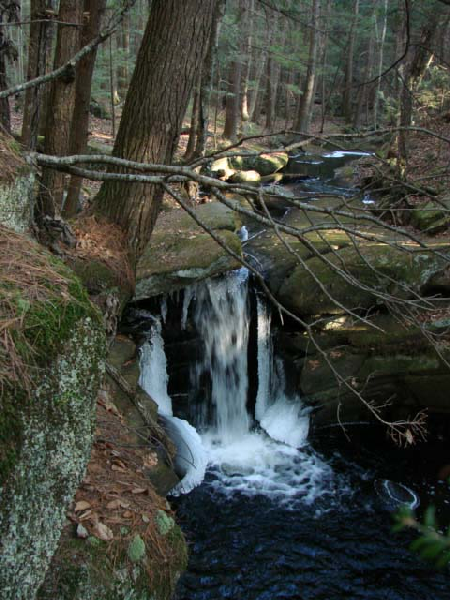About Us
 The WCC was established by the voters to insure the proper utilization and protection of our natural resources and for the protection of watershed resources of Winchester.
The WCC was established by the voters to insure the proper utilization and protection of our natural resources and for the protection of watershed resources of Winchester.
A commission is the only local board specifically charged to protect the natural resources of a municipality.
A conservation commission provides a focal point within the Town for environmental concerns.
The commission may advise the Planning Board and other local bodies on conservation matters. It may act more directly to protect natural resources by acquiring, with the approval of the Selectmen, the fee (full title) or a lesser interest in land or water resources.
The WCC "may advertise, prepare, print and distribute books, maps, charts, plans and pamphlets... necessary for its work." Informing the public about the nature and reasons for a particular proposal of a conservation commission is as vital to its success as the initial research and thought behind it.
The NH statute governing "Fill and Dredge in Wetlands," RSA 482-A allows a conservation commission to request time to investigate an application for a dredge and fill permit filed with the NH DES Wetlands Bureau.
RSA 155-E: 3 (Application for Permit) requires an applicant for an excavation permit to send a copy of the application to the conservation commission. This provides an opportunity for a commission to make comments and recommendations on proposed excavation and restoration plans. A commission should see to it that it, does in fact, receive copies of applications and that its comments are considered in regulatory decisions. Local regulations should specify that the regulator (in this case the Selectmen) consider the commission's comments and prepare written findings if a decision differs from commission recommendations.
One member is permitted to serve simultaneously on the city or town Planning Board, with one or more members to serve on the Heritage or Historic District Commission. RSA-36-A:3 allows for the appointment of an unspecified number of members.
The WCC may receive gifts of money and or property, both real and personal, in the name of the town or city, subject to approval of the local governing body...the fee in such land or water rights, or any lesser interest... and shall manage and control the same...
The intent of the legislature was to allow conservation commissions to accept donations and to acquire land, either outright or through easements, in the name of the town or city. In either case, the municipality becomes the owner of the property or easement; a conservation commission may not own property. This authority can be useful in acquiring property; particularly when there is an established conservation fund to do so with. Time is often of the essence when land becomes available. In towns, use of this power can avoid waiting for the Town Meeting approval to accept or purchase property.

